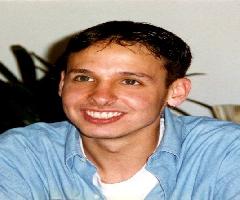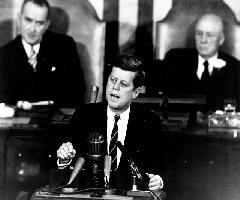Open Door Family Medical Centers runs on a $32 Million annual budget. The fact that most of the money comes from state, federal and county sources likely elevates the ire of people who fear government centered healthcare can only sink our system and float us toward the inefficient model of socialist Europe. On the other hand, it probably doesn't come as a surprise that the center's CEO is pretty grounded at the prospect of modeling ourselves closer the European system but she makes the case for healthcare reform and Open Door by simply sticking to the numbers.
"They are
We know - and it's well documented and well researched - that the way to improve the system is by having a more robust primary care delivery system," she says.
As such, Open Door is essentially a large doctor's office. "We are organized as a family medical practice," she says.
In turn, patients either receive a sliding scale or qualify through Medicaid. That said, nearby hospitals like Northern Westchester and Phelps are not complaining and neither is the long term sustainability of the local system. "They love us," she says, "because we keep their emergency rooms clear for emergences." At the same time, expensive E/R resources are not wasted on ear aches and head colds.
Of course, the care offered at Open Door is quality. We have Ivy League grads, all our doctors are residency trained and we will soon be launching a residency program with Phelps, she says.
In White Plains, though, the County Executive has shown himself to be out of alignment with the program and the math. "Rob Astorino is not a big fan," she says, "but last year legislators overrode the cuts that were proposed."
Seemingly not so forthcoming with the defeat, funding came in about five months later than usual. More concerning is the example the County Executive set last year in not releasing County Funding to childcare following the defeat of proposed cuts. In that light, Open Door could then be scrambling for the $500,000 normally received from Westchester County.
Either way, the dance is something Open Door is used to across the board. "We're sort of at the mercy of these various levels of government," she says.
All in all, the funding outcomes have usually been favorable. On the state level, she says, "New York has a very generous medicaid program in comparison to other states."
But historically, it's the federal government that allowed the doors to open for facilities such as this. "The federal government in the late 60s recognized that there were lots of low income communities where doctors weren't hanging out their shingle because a doctor isn't going to make any money in a poor community," says Farrell.
Thus, Open Door was able to break ground in 1970 and federal programs through succeeding administrations have allowed the uninsured greater access to healthcare services. For example, Bill Clinton's Child Health Plus widened coverage for children of low income families and George W. Bush's expansion of grant programs had a marked impact on Westchester. "Thanks to those grants," she says, "we were able to open up in Mt. Kisco and expand our facility in Port Chester."
President Obama's affinity to the issue has also resulted in an increase in grants and further support of Medicaid, but the rise of the Teaparty leaves things more uncertain. Putting aside the boon to local emergency rooms, she counters their fears of big government inefficiency with a basic fact. "We do better than most private practices because we have so much accountability," she says, and the elevated requirements begets highly competent management that keeps patient services at optimum levels, she adds.
If that doesn't help detractors stack up the situation, the local Teaparty outlet in the form of U.S. Representative Nan Hayworth has been to Open Door and weighs in mostly on the upside. Wowed by the operation, says Farrell, "She's been extremely supportive. She doesn't like the medicaid program but she gets it."
Overall, Ms. Farrell hopes the long term history can outlast any fickleness of the moment. If not, she concludes, "Then you would have to curtail services for the patients that are depending on you."
And that hurts everyone.
More Politics
http://richmpolitics.blogspot.com/


